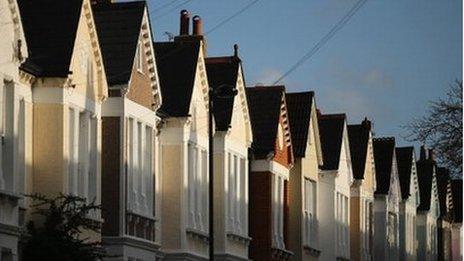UK manufacturing activity picks up in November
- Published
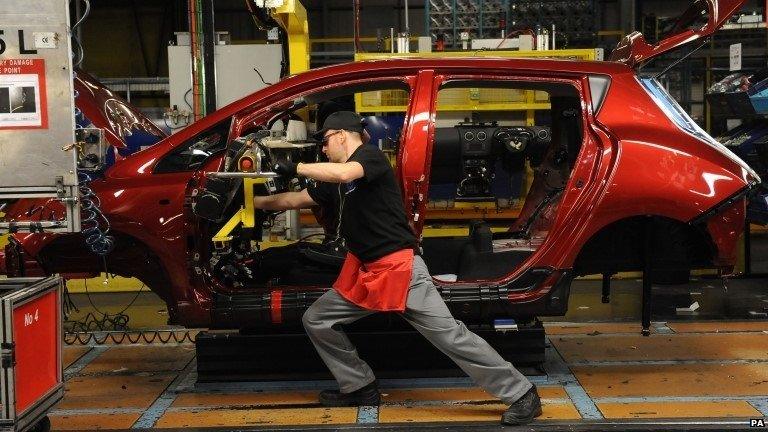
UK manufacturing activity increased in November after solid domestic demand offset weaker orders from overseas markets, a survey has indicated.
The Markit/CIPS Purchasing Managers' Index, external rose to 53.5 from 53.3 in October. A figure above 50 implies that the sector is growing.
The reading was the highest for four months and adds to the picture of a stronger economy.
The rate of job creation reached a four-month high, the survey found.
"In the lead-up to the chancellor's Autumn Statement, the November PMI survey shows the UK manufacturing sector continuing its solid expansion," said Rob Dobson, senior economist at Markit.
"Despite easing from the stellar pace set in the first half of the year, growth is still coming from a broad-base that will aid its sustainability."
Eurozone
A separate survey on Monday, also by Markit, found eurozone manufacturing growth stalled in November, with new orders falling at the fastest pace in 19 months.
Markit said "the situation in euro area manufacturing is worse than previously thought... there is a risk that renewed rot is spreading across the region from the core".
Its November manufacturing PMI for the eurozone was 50.1, down from 50.6 in October.
Chancellor George Osborne has warned that the UK is being affected by weakening economies in the eurozone, as well as elsewhere. China's official purchasing managers' index (PMI) for manufacturing dipped to 50.3 in November from October's 50.8,
Monday's UK survey showed manufacturing exports were still falling, notably to the European Union and Russia. A weaker euro was adding to this.
Mr Dobson added that a lower oil price, currently at four-year lows, meant inflationary pressures in the UK were also easing and that this "will continue to provide some leeway for the Bank of England to hold off from raising [interest] rates even as solid growth persists".
Jeremy Cook, chief economist at international payments company World First, said: "November's release paints a similar picture to that seen in October, in that the domestic picture is solid and strong but growth in export markets - particularly in the EU and emerging markets - is worse; a function of weaker global growth and a strong pound making UK goods more expensive."
- Published1 December 2014
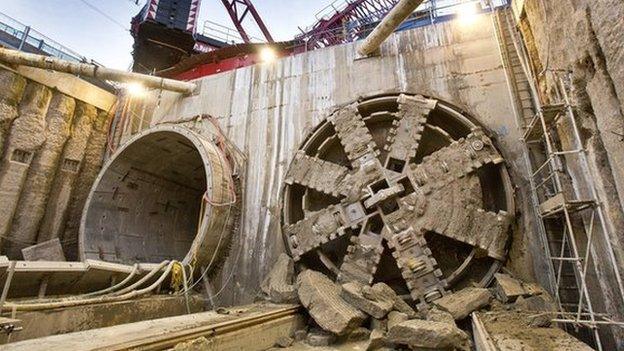
- Published26 November 2014
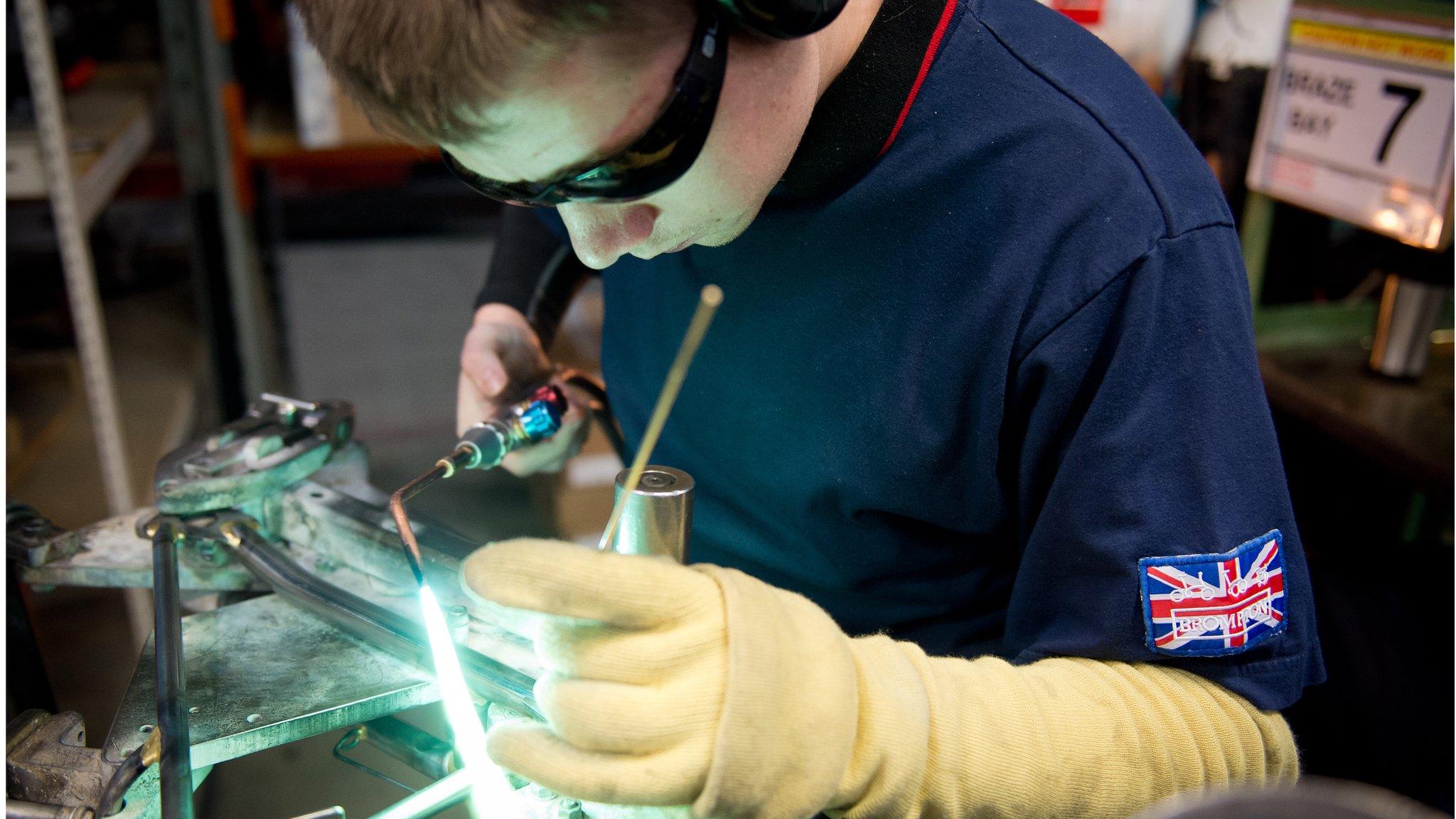
- Published25 November 2014
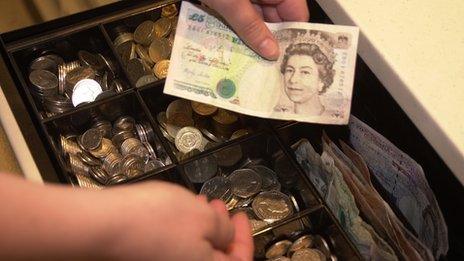
- Published28 November 2014
